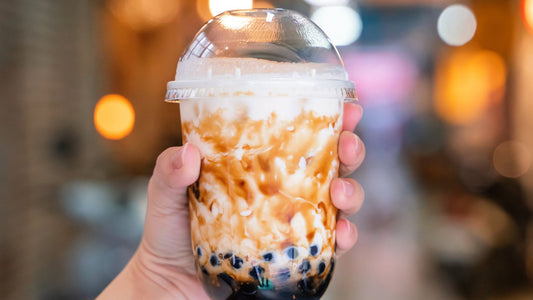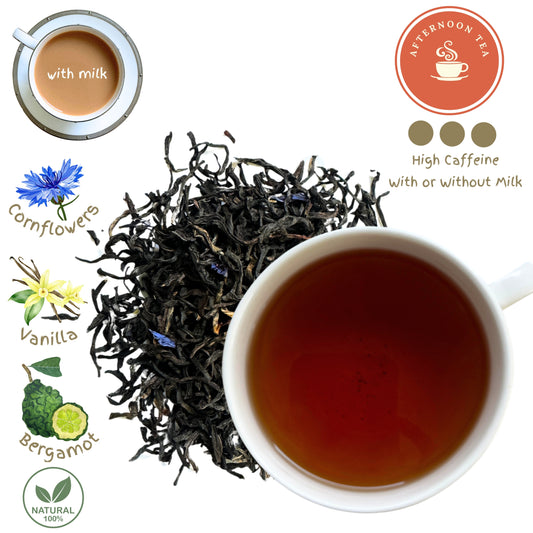Navigating the Diverse Roles in the World of Tea:
Unraveling the Distinctions Between Tea Sommeliers, Tea Tasters, Tea Masters, Tea Valuers, Tea Auctioneers, and Other Key Players in Tea Production.
The world of tea is a vast and multifaceted landscape, encompassing a diverse array of roles and expertise that contribute to every aspect of tea production, consumption, and appreciation. Among the key players in this intricate ecosystem are Tea Tasters, Tea Sommeliers, Tea Masters, Tea Valuers, Tea Auctioneers, and various other professionals who play pivotal roles in shaping the tea industry. In this comprehensive article, we delve into the nuances of each role, exploring their distinct responsibilities, expertise, and contributions to the world of tea.
Understanding the Roles in Tea Production:
What is a Tea Taster:
Tea tasting is both an art and a science, and the Tea Taster serves as its connoisseur, possessing a keen palate and a deep understanding of tea's sensory attributes. The primary role of a Tea Taster is to assess the quality, flavor, aroma, and appearance of teas through systematic tasting sessions, known as "cuppings."
- Expert Palate: A Tea Taster undergoes rigorous training to develop and refine their palate, enabling them to discern subtle nuances in flavor and aroma. They are skilled at identifying various tea characteristics, including sweetness, bitterness, astringency, and body. They can determine the quality and grade of a tea based on these attributes.
- Quality Assessment: Tea Tasters play a crucial role in quality control within the tea industry. They evaluate samples from different batches or estates to ensure consistency in flavor and adherence to quality standards. By meticulously assessing teas through sensory analysis, Tea Tasters helps maintain the reputation and integrity of tea brands and estates.
- Market Trends: Tea Tasters also keep abreast of market trends and consumer preferences in addition to assessing tea quality. They provide valuable insights to tea producers and buyers, guiding product development, blending, and sourcing decisions.
- Certification and Training: Becoming a certified Tea Taster requires formal education and training, including courses in sensory evaluation, tea processing, and tea culture. Many organizations offer certification programs, such as the Specialty Tea Institute and the Tea and Herbal Association of Canada, which validate the expertise and proficiency of Tea Tasters.
What is a Tea Sommelier:
The role of a Tea Sommelier is akin to that of a wine sommelier, specializing in the art of tea service, pairing, and education. They possess a refined palate and deep knowledge of tea varieties, flavors, and brewing techniques. Key responsibilities of a Tea Sommelier include:
- Tea Education: Tea Sommeliers provide guidance and education to consumers, helping them navigate the world of tea and make informed choices based on flavor preferences and occasions.
- Tea Pairing: Similar to wine pairing, Tea Sommeliers excel in pairing teas with food, desserts, and other beverages, enhancing the dining experience and showcasing the versatility of tea.
- Tea Service: Tea Sommeliers curate tea menus, oversee tea service in restaurants, hotels, and tea establishments, and ensure the quality and presentation of tea offerings.
Why is a Tea Taster more experienced and valued than a Tea Sommelier in the fine Tea industry?
It's essential to recognize that both Tea Tasters and Tea Sommeliers bring valuable expertise and skills to the world of tea. However, the difference in experience and value between the two roles often lies in their respective focuses, training, and contributions to the tea industry.
Experience:
Tea Tasters typically undergo rigorous and specialized training focused on sensory evaluation, quality assessment, and tea processing. Their expertise is honed through years of practice in systematically tasting and analyzing teas to determine their quality, flavor profiles, and market value. This extensive experience allows Tea Tasters to develop a finely tuned palate capable of discerning subtle nuances in teas, identifying regional characteristics, and ensuring consistency in tea products.
In contrast, while Tea Sommeliers also undergo training in sensory evaluation and tea knowledge, their primary focus lies in customer service, tea pairing, and menu curation within hospitality and retail settings. While they may possess considerable expertise in guiding consumers in tea selection and appreciation, their experience may sometimes encompass a depth of sensory analysis and quality assessment different from that of tea tasters.
Value of an experienced Tea Taster:
The value attributed to Tea Tasters stems from their critical role in maintaining the quality and integrity of tea products within the industry. Their ability to accurately assess tea samples, identify flavor inconsistencies, and ensure adherence to quality standards is indispensable for tea producers, buyers, and sellers. Tea Tasters play a crucial role in safeguarding the reputation of tea brands, facilitating trade, and preserving the authenticity of tea products.
Moreover, the expertise of Tea Tasters extends beyond individual tea varieties to encompass broader knowledge of tea cultivation, processing methods, and market trends. Their insights and recommendations inform strategic decisions in product development, blending, and sourcing, contributing to the success of tea businesses and competitiveness.
While Tea Sommeliers play a vital role in enhancing the tea experience for consumers through their expertise in tea pairing, service, and education, the specialized skills and knowledge of Tea Tasters are often regarded as essential for ensuring tea quality and authenticity within the industry. As such, Tea Tasters are valued for their expertise in sensory evaluation and quality assessment and their contributions to maintaining high tea production and appreciation standards.
This is why Manasa Tea is partnered with Lucinda Delwita, a highly experienced with over 25 years and a highly regarded tea taster in the Ceylon tea industry where his job entailed tasting up to 600 cups a day, evaluating teas on leaf appearance, color, taste, determining market value, and best blend it is suited for, selling at the Colombo tea auctions, and advising plantations on future market requirements, guiding plantations on how to make teas suitable for the market among many aspects of designing the best Ceylon tea.
Understanding the Distinctions Between Tea Tasters and Tea Masters.
Two distinct roles often stand out within the intricate world of tea: the Tea Taster and the Tea Master. While both are integral to the tea industry, their responsibilities, expertise, and contributions vary significantly. In this comprehensive article, we delve into the nuances of these roles, exploring what sets them apart and how they each contribute to the rich tapestry of tea culture.
Exploring the Role of the Tea Master:
While the Tea Taster focuses primarily on sensory evaluation and quality assessment, the Tea Master embodies a broader scope of expertise encompassing tea cultivation, processing, blending, and tea culture. The title of Tea Master is often reserved for individuals with a high mastery and knowledge of tea.
- Comprehensive Expertise: A Tea Master possesses extensive knowledge of tea, spanning its history, cultivation, processing techniques, regional variations, and cultural significance. They understand the intricacies of tea production from leaf to cup. They are adept at every stage of the tea-making process.
- Artistry in Tea Blending: One of the defining skills of a Tea Master is the art of tea blending. They possess a nuanced understanding of flavor profiles and aromatic profiles. They can create harmonious blends by combining different teas and botanicals. Tea Masters often develop signature blends that reflect their creativity, expertise, and aesthetic sensibilities.
- Cultural Ambassadorship: Tea Masters serve as cultural ambassadors for tea, sharing their knowledge and passion with others through educational programs, workshops, and public events. They play a vital role in preserving and promoting tea culture, fostering global appreciation and understanding among tea enthusiasts.
- Tradition and Innovation: While deeply rooted in tradition, Tea Masters embrace innovation and experimentation in tea production and consumption. They explore new techniques, varieties, and flavor combinations while honoring the time-honored traditions that define the art of tea.
Distinguishing Between Tea Tasters and Tea Masters:
While both Tea Tasters and Tea Masters contribute significantly to the world of tea, critical distinctions exist between their roles, expertise, and contributions.
- Focus: Tea Tasters specialize in sensory evaluation and quality assessment, whereas Tea Masters possess a broader scope of expertise encompassing tea cultivation, processing, blending, and cultural knowledge.
- Palate vs. Mastery: Tea Tasters excel in palate refinement and sensory analysis, while Tea Masters demonstrate mastery across various aspects of tea production, blending, and cultural traditions.
- Certification: Tea Tasters often undergo formal certification programs to validate their expertise, while the title of Tea Master is typically conferred based on demonstrated knowledge, experience, and mastery.
- In the diverse and multifaceted world of tea, the Tea Tasters and Tea Masters each play a vital role in shaping the industry's landscape and enriching the tea experience for enthusiasts worldwide. While Tea Tasters meticulously assesses tea quality and flavor, Tea Masters fully understands tea culture, craftsmanship, and innovation. Together, they contribute to the preservation, appreciation, and evolution of one of the world's most beloved beverages, ensuring that the legacy of tea continues to thrive for generations to come.
What is a Tea Valuer:
Tea Valuers specializes in assessing the value and marketability of teas, particularly in the context of tea auctions and trading. They possess expertise in tea grading, pricing, and market trends, helping tea producers, buyers, and sellers navigate the tea marketplace. Key responsibilities of a Tea Valuer include:
- Auction Preparation: Tea Valuers prepare tea samples for auction, ensuring accuracy in grading, labeling, and presentation and providing detailed descriptions of each tea lot.
- Price Determination: Tea Valuers assess teas' quality, rarity, and demand to determine their market value and recommend appropriate pricing strategies for tea auctions and sales.
What is a Tea Auctioneer:
Tea Auctioneers oversee the auctioning of teas, facilitating transactions between buyers and sellers and ensuring transparency and fairness in the bidding process. They possess expertise in tea valuation, auction logistics, and market dynamics. Key responsibilities of a Tea Auctioneer include:
- Auction Management: Tea Auctioneers manage all aspects of the auction process, from cataloging and lotting teas to conducting bidding sessions and finalizing transactions.
- Market Analysis: Tea Auctioneers analyze market trends and supply and demand dynamics to provide insights and recommendations to tea producers, buyers, and sellers, helping them make informed decisions.
Other Important Roles in Tea Production:
In addition to the abovementioned roles, several other professionals play crucial roles in tea production, distribution, and promotion. Some of these roles include:
Tea Planter
A Tea Planter is an individual involved in cultivating and managing tea plantations. Their primary responsibility is overseeing the entire tea cultivation process, from planting and nurturing young tea bushes to harvesting and processing tea leaves.
Key duties and responsibilities of a Tea Planter may include:
- Plantation Management: Tea Planters are responsible for managing all aspects of tea cultivation, including soil preparation, planting new tea bushes, and maintaining the health and productivity of existing plants.
- Crop Management: They oversee the application of fertilizers, pesticides, and other inputs to ensure optimal growth and yield of tea crops while adhering to sustainable and environmentally friendly practices.
- Harvesting: Tea Planters supervise the harvesting tea leaves, ensuring that only the highest quality leaves are plucked at the appropriate stage of maturity.
- Processing Oversight: While Tea Planters primarily focus on cultivation, they may also oversee the initial stages of tea processing, ensuring that harvested leaves are properly withered and prepared for further processing.
- Labor Management: Tea plantations typically employ a significant workforce for plucking, pruning, and maintenance tasks. Tea Planters manage labor relations, ensure fair wages, and provide appropriate training and supervision.
- Quality Control: Tea Planters play a critical role in maintaining the quality of tea produced on their plantations. They monitor leaf quality, flavor, and appearance to ensure the final product meets quality standards.
- Market Analysis: While not always their primary focus, Tea Planters may also monitor market trends and prices, providing input for decisions related to production levels and marketing strategies.
Tea Planters often collaborate with other professionals, including agronomists, agricultural engineers, and tea processing experts, to optimize tea production and quality. They may be employed by large tea estates, small-scale tea gardens, or tea companies, depending on the scale of the operation. Overall, Tea Planters play a crucial role in cultivating and producing one of the world's most beloved beverages.
Other Roles in Tea Production
Tea Pluckers
A Tea Plucker is responsible for harvesting tea leaves from the tea bushes. This role is crucial in the tea production process, as only the tender, topmost leaves and buds are plucked to ensure the highest quality of tea.
Key responsibilities of a Tea Plucker include:
- Harvesting: Tea Pluckers carefully handpick the young, delicate tea leaves and buds from the bushes. They use their fingers to pluck the leaves, ensuring that only the topmost leaves and buds are harvested.
- Quality Control: Tea Pluckers are trained to select the highest quality leaves, typically consisting of the bud and the first two leaves. They inspect the leaves for signs of pests, disease, or damage and discard any inferior leaves to maintain the overall quality of the harvest.
- Yield Optimization: Tea Pluckers work efficiently to maximize the yield of high-quality tea leaves while minimizing damage to the bushes. They follow specific plucking techniques and timing to ensure the bushes remain healthy and productive throughout the harvesting season.
- Work Environment: Tea Pluckers often work outdoors in tea gardens or plantations, where they may be exposed to various weather conditions. The work can be physically demanding, requiring bending and stooping to reach the tea bushes and repetitive hand movements for plucking.
- Teamwork: In more extensive tea plantations, Tea Pluckers typically work as part of a team supervised by a field supervisor or manager. They collaborate with other pluckers to ensure an efficient and timely harvest, focusing on maintaining quality standards.
- Safety and Regulations: Tea Pluckers must adhere to safety regulations and guidelines to prevent accidents and injuries in the workplace. This may include using proper tools and equipment, following ergonomic practices, and receiving training on occupational health and safety.
Overall, Tea Pluckers play a critical role in the tea production process, as they are responsible for harvesting the raw material that forms the basis of one of the world's most popular beverages. Their attention to detail, skill, and dedication contribute to the quality and flavor of the final tea product.
More roles
- Tea Farmers: Tea farmers cultivate and harvest tea plants, manage plantations, and ensure optimal growing conditions to produce high-quality tea leaves.
- Tea Processors: Tea processors oversee the processing and manufacturing of tea, including withering, rolling, oxidation, and drying, ensuring the quality and consistency of the final product.
- Tea Researchers: Tea researchers conduct scientific studies and experiments to improve tea cultivation, processing techniques, and product innovation, advancing the understanding and sustainability of tea production.
- Tea Educators: Tea educators provide training and educational programs on various aspects of tea, including cultivation, processing, brewing, and tasting, fostering knowledge and skills development among tea enthusiasts and industry professionals.
- Tea Merchants: Tea merchants source, purchase, and distribute teas to consumers through retail channels, online platforms, and specialty tea shops, curating diverse tea selections and providing access to rare and specialty teas worldwide.
In the dynamic and multifaceted world of tea, each role plays a vital part in shaping the industry's landscape and enriching the tea experience for enthusiasts worldwide. Whether it's the sensory expertise of Tea Tasters, the creative artistry of Tea Masters, the market insights of Tea Valuers, or the service excellence of Tea Sommeliers, each professional contributes to the preservation, promotion, and evolution of one of the world's most beloved beverages. Together, they form a diverse and interconnected ecosystem that celebrates tea's rich cultural heritage, craftsmanship, and diversity.










